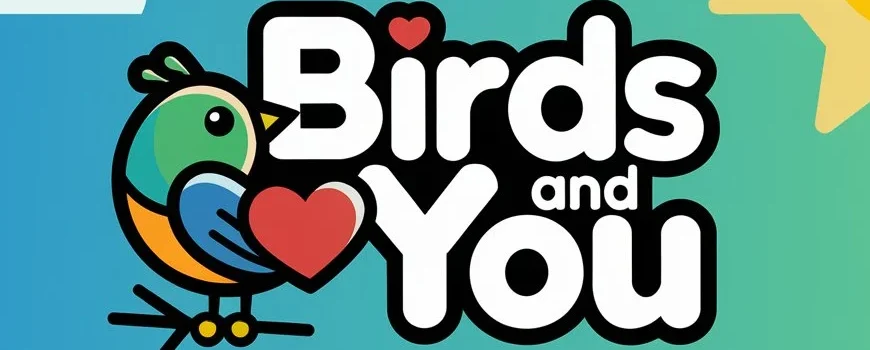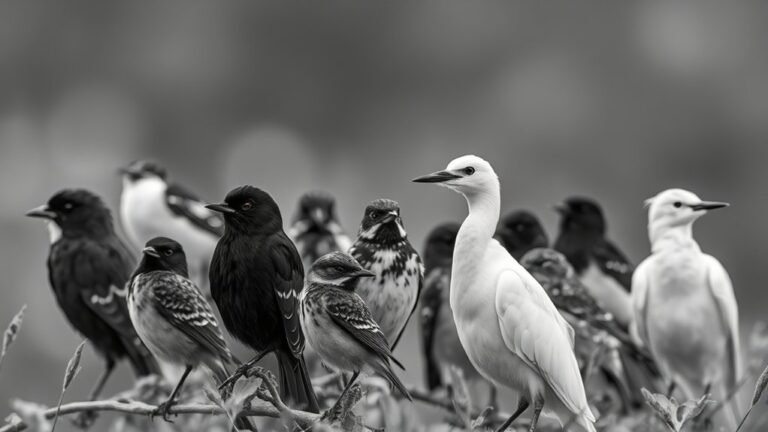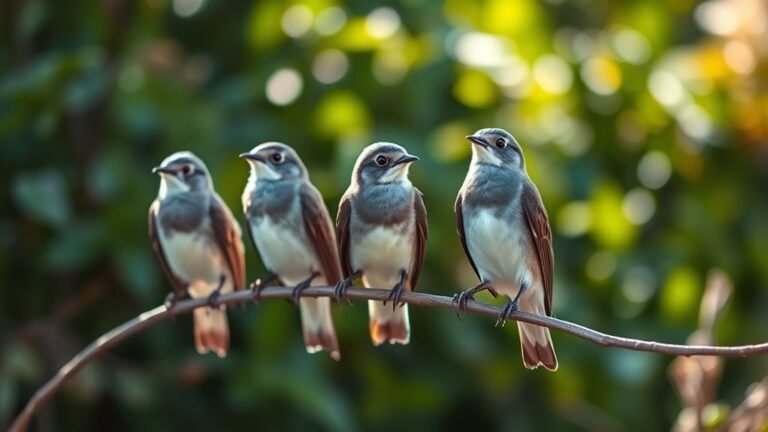What Do You Call a Group of Vultures?
When you spot a group of vultures, you might ask, "What do I call them?" The answer is "wake." This name comes from how vultures feed and socialize together.
Vultures often gather in groups. While they are together, they do things like clean each other's feathers and show who is in charge. These actions help them survive and are key to keeping nature balanced.
Vultures might seem scary, but they are important. They help clean up dead animals. This keeps the environment neat and safe for other creatures. Learning about vultures helps you see why they matter in the ecosystem.
A Quick Overview
A group of vultures is called a "wake." This name shows that vultures like to socializing.
Vultures often come together in wakes to eat and hang out with each other. They work as a team when finding food, which helps them survive. Different kinds of vultures sometimes gather in wakes to share meals.
Knowing that a group of vultures is called a wake helps us understand how important their communities are. These gatherings are a big part of their lives in nature.
The Collective Noun for Vultures
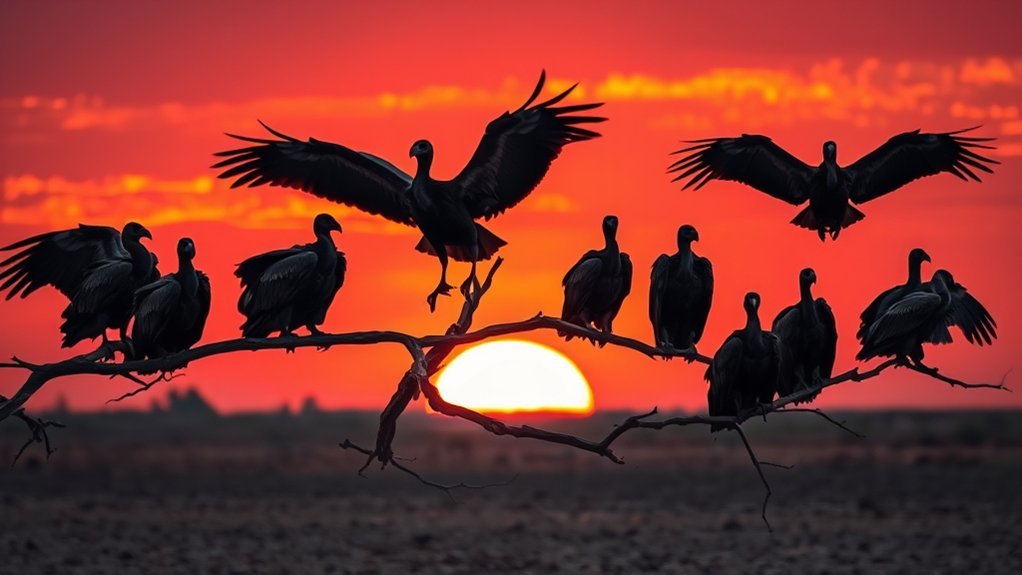
When you think of a group of vultures, you might picture a "wake." This is the name we use for a group of these birds. It makes sense because vultures are scavengers that often gather together.
Vultures play an important role in nature. They help clean up dead animals. This work helps the environment renew itself. Many cultures see vultures as symbols of change and transformation. They connect death with new life.
The term "wake" shows how vultures interact when they eat or rest together. It highlights their community and their part in the circle of life.
Watching how vultures behave can help you see how they fit into nature's web. Understanding these birds can bring us closer to the balance of life around us.
Vulture Behavior and Social Structure
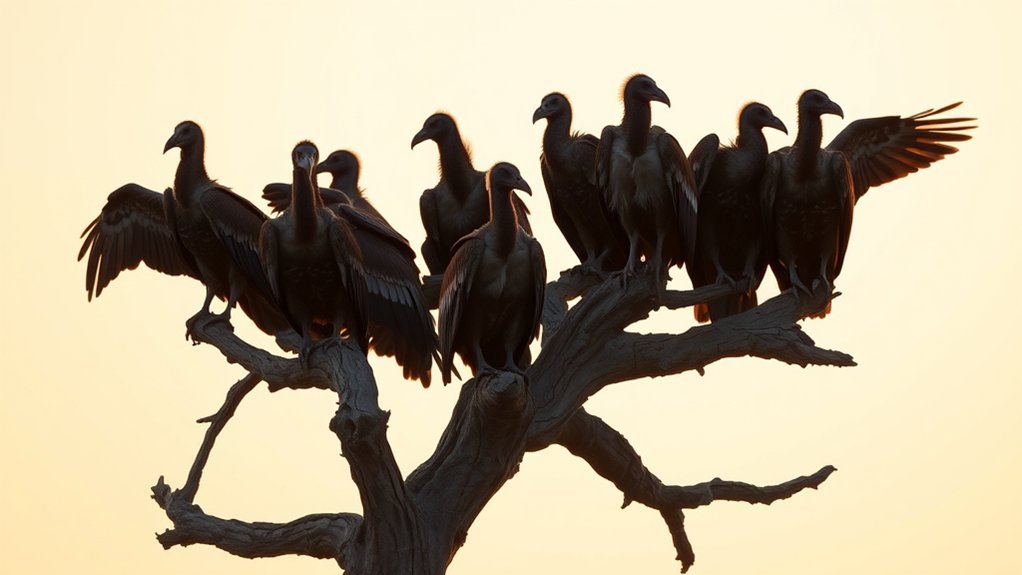
Vultures have some really interesting behaviors and a social setup that helps them survive as scavengers. In a group of vultures, there's a clear hierarchy. This means some vultures are more dominant and often get to eat first when they find food. The others wait their turn. This system helps them work together better when looking for food.
Vultures also groom each other, which helps them build friendships and keep the peace in the group. These social bonds make them feel like they belong and help them find food more easily as a team.
Learning about these behaviors can help you appreciate vultures more and see how connected they're in nature.
Different Types of Vultures

Vultures are amazing birds found in many places around the globe. They're unique and have special traits that help them survive in different environments.
Let's take a look at some interesting types of vultures:
- California Condors: These birds are very large and are in danger of extinction. They help their ecosystems by cleaning up dead animals.
- Eurasian Griffons: These big vultures are known for their size. They fly high in the sky looking for food.
- Turkey Vultures: These birds have a great sense of smell. They can find rotting animals from far away.
- African White-backed Vultures: These vultures like to move in groups. They work together to find food and show strong friendships.
Learning about these different vultures helps us appreciate their lives and the important roles they play in nature.
Vultures may seem a bit creepy, but they're vital for keeping the environment clean and healthy!
The Ecological Role of Vultures
Vultures are incredible birds that help keep our environment clean and healthy. They eat dead animals, which is super important for nature. By munching on carrion, or leftover food, vultures help stop diseases from spreading. Their stomachs are special. They can digest germs and bacteria, which keeps them and other animals safe.
Besides cleaning up, vultures also help make the soil better. When they eat, their waste gives nutrients to the ground, helping plants grow.
Next time you see vultures flying in the sky, remember they're nature's clean-up crew. They do a big job for our ecosystem.
When we support vultures, we help keep nature balanced and healthy. Appreciating these unique birds can make us better stewards of the environment.
Fascinating Facts About Vultures
Vultures are interesting birds with some cool traits. They're known for their strong sense of smell. This helps them find dead animals from far away. Vultures are important for the environment because they help clean up by eating these dead animals.
Vultures have meanings in different cultures too. Some people see vultures as symbols of change. They remind us of the circle of life and death.
There are also stories that feature vultures as helpers for souls. This connects them to beliefs about what happens after we die.
Vultures are social birds. They like to hang out in groups and make friendships with other vultures in their flock.
Learning about vultures helps us see how special they really are!
Conservation Efforts for Vulture Populations
Vultures are very important for our environment. They help keep nature balanced by eating dead animals. However, their numbers have gone down a lot in recent years. This decline is due to losing their homes, getting poisoned, and being hunted.
To help these birds, many groups are working on conservation efforts around the world. You can help too! Supporting projects that protect their habitats ensures vultures have safe places to live. It's also important to teach people about why vultures are essential for nature. When communities understand their value, they'll want to protect them.
Working together is key. Conservation organizations can set up safe feeding spots for vultures and find ways to stop accidental poisonings. By getting involved in these efforts, you help make our ecosystem healthier and fight against the loss of wildlife.
Together, we can secure a better future for vultures and strengthen our bond with nature.
Frequently Asked Questions
What Do Vultures Eat Besides Carrion?
Vultures mainly eat dead animals, which is called carrion. However, they sometimes snack on small mammals, insects, or bird eggs too. These birds are great scavengers. They help clean up the environment by eating what others leave behind. Eating different foods helps them survive better. So, while they love carrion, they are not picky eaters!
How Long Do Vultures Typically Live?
Vultures usually live between 10 and 30 years in the wild. Their lifespan can change based on their species and where they live. This long life shows how clever and strong vultures are. They can adjust to different environments and thrive in various habitats. Isn't it interesting how these birds find ways to survive?
Are Vultures Dangerous to Humans?
Vultures are not dangerous to people. They mostly eat dead animals and are very good at finding food this way. When they see humans, they usually fly away instead of coming closer. They like to keep their distance because they do not want to get near things that could hurt them. So, if you see a vulture, don't worry! They're just minding their own business.
Can Vultures Be Domesticated or Kept as Pets?
You can't keep vultures as pets. They are wild animals with special habits and roles in nature. Instead, help protect them by supporting conservation efforts. This way, vultures can stay safe in their natural homes, and our planet can stay diverse and healthy. Let's work together to keep nature balanced!
What Threats Do Vultures Face From Humans?
Vultures face big problems because of humans. One major issue is habitat destruction. This means that people are cutting down trees and building in places where vultures live. When their homes disappear, it gets hard for them to survive.
Another big threat is poisoning. Sometimes, people use poison to kill animals. This poison can also hurt vultures that eat those animals. When vultures eat the poisoned animals, they can get sick or even die.
Because of these problems, vultures are disappearing from many areas. We need to protect their homes and be careful about how we use poison. This way, we can help keep vultures safe and healthy.

Luna is the passionate founder and author of Birds and You, a website dedicated to sharing her love for birds with fellow enthusiasts. Through her engaging articles and guides, she aims to educate and inspire others to explore the fascinating world of birds. When she’s not writing, you can find Luna observing birds in their natural habitats or sharing beautiful bird photography on Pinterest. Join her on this journey to celebrate and protect our feathered friends!
